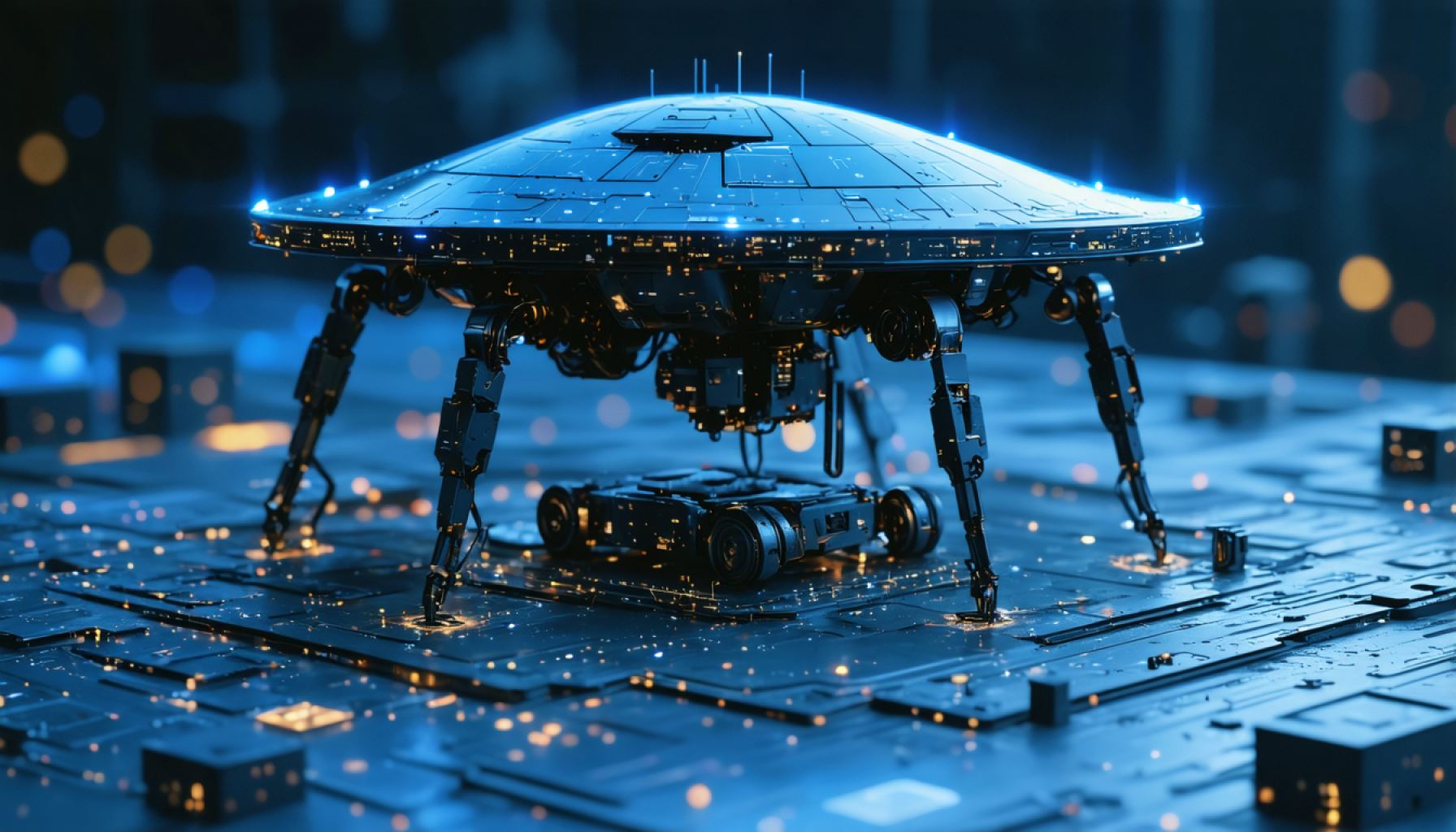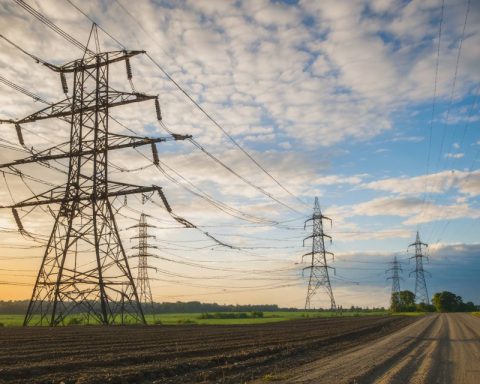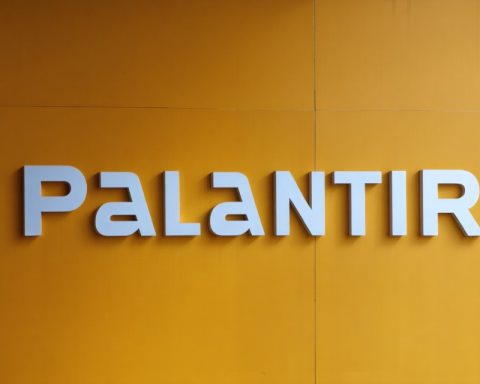- South Korea is constructing a monumental $35 billion data center, demonstrating a major shift in global AI ambitions.
- This facility will deliver up to 3 gigawatts of power, surpassing similar projects worldwide, including the Stargate initiative in Texas.
- The data center will support AI models that demand increasing computational and energy resources.
- Global players like Malaysia, Thailand, and India are recognizing opportunities in the AI sector due to favorable conditions.
- Elon Musk’s rejected offer to buy OpenAI for $97.4 billion signifies the intense pursuit of AI dominance.
- South Korea’s venture is a signal of the transformative potential of the AI era, where those who build and power will influence the future.
Shimmering like a beacon in the digital age, a new architectural marvel is set to rise in South Korea—a $35 billion data center that draws attention and underscores a seismic shift in global AI ambitions. This colossal project, promising to deliver up to 3 gigawatts of power, dwarfs other endeavors, including the ambitious Stargate initiative in Texas. Its scale speaks to a world where artificial intelligence reigns supreme, a realm where power isn’t just king but the throne itself.
Imagine a data fortress consuming enough electricity to light up a small city, all in service of the growing appetite for AI models. These neural behemoths, demanding ever more computational muscle, require unprecedented energy consumption. Picture humming servers within walls that seem to breathe with their own power—ensuring machines think faster and more efficiently than the day before.
In a twist reminiscent of a high-stakes chess game, players across the globe are scrambling to secure their positions. Behind the scenes, large-scale investments fuel these silicon sanctuaries, with countries like Malaysia, Thailand, and India eyeing their opportunities, where affordability meets availability.
Amid this backdrop, heavyweights like Elon Musk are maneuvering with intent, evidenced by his bold yet spurned proposition to purchase OpenAI for $97.4 billion. His offer, while rejected, highlights the relentless pursuit of dominance in the AI sphere, no matter the cost.
As power grids expand and fortunes sway, the takeaway becomes clear: we stand on the cusp of an extraordinary era. South Korea’s audacious venture is a clarion call to the rest of the world. In this new age of AI, those who dare to build—and power—will shape the future.
Revolutionizing the Digital Frontier: What You Need to Know About South Korea’s $35 Billion AI-Driven Data Center
Overview
South Korea’s ambitious $35 billion data center project signifies a monumental leap forward in the global AI arms race. As digital demand surges, these data centers become the nerve centers of AI innovation, offering unparalleled power to drive next-generation technologies.
Real-World Use Cases
– AI Research and Development: Such a data center will serve as a powerful hub for AI research, offering computational resources for developing advanced AI models, from natural language processing to image recognition.
– Cloud Services: Major tech companies could leverage this facility to offer robust cloud-based solutions, providing scalable resources for businesses worldwide.
– Big Data Analytics: Industries such as finance, healthcare, and marketing can utilize these centers to process massive datasets, offering insights that drive decision-making and strategic planning.
Market Forecasts & Industry Trends
– AI Market Growth: According to industry reports, the global AI market is expected to grow at a CAGR of 42.2% from 2020 to 2027, driven by innovations in AI infrastructure such as this one.
– Data Center Expansion: Asia-Pacific is anticipated to see the highest growth rate in the data center market, motivated by increasing digital transformations and governmental initiatives supporting AI technology.
Features, Specs & Pricing
– Power Capacity: At 3 gigawatts, this facility’s power usage can be compared to powering an entire city. It showcases the tremendous electrical infrastructure necessary to sustain advanced computational workloads.
– Size and Scope: It is projected to be one of the largest single data centers ever constructed, occupying vast expanses of land to house its technical assets.
Security & Sustainability
– Security Protocols: With increased power comes an increase in security needs. Advanced cybersecurity measures, including AI-based threat detection systems, are likely to be necessary to protect sensitive data.
– Environmental Impact: Sustainable practices, like the use of renewable energy sources and efficient water recycling systems, are crucial to mitigating the environmental footprint of such energy-intensive initiatives.
Pros & Cons Overview
Pros
– Unmatched Computational Power: Drives innovations and supports large-scale AI projects.
– Economic Growth: Job creation and technological advancement stimulate the local and global economy.
– Global Influence: Positions South Korea as a leader in AI technologies.
Cons
– High Energy Consumption: Raises concerns about sustainability and environmental impact.
– Significant Capital Investment: High upfront costs can be a barrier to development.
Reviews & Comparisons
– Compared to the Stargate Initiative in Texas: South Korea’s data center surpasses in power capacity, setting new standards for data centers globally.
– Elon Musk’s Proposal: Illustrates the fierce competitive landscape as companies and nations pursue AI supremacy.
Actionable Recommendations and Quick Tips
– Stay Updated: Follow industry news to remain informed on developments and opportunities arising from this project.
– Consider Investment Opportunities: Those in finance should evaluate potential investments in related technologies and services.
– Embrace AI Solutions: Businesses should explore incorporating AI services powered by this and similar mega infrastructures into their operations.
For more insights on current industry trends and AI developments, visit the IBM website or the Microsoft site.
In conclusion, South Korea’s groundbreaking endeavor not only sets a new benchmark for what data centers can achieve but also underscores the ever-evolving landscape of AI technology. As these facilities become cornerstones of digital ecosystems, mastering the nuances of their development and implementation will provide a competitive edge in an increasingly AI-driven world.









